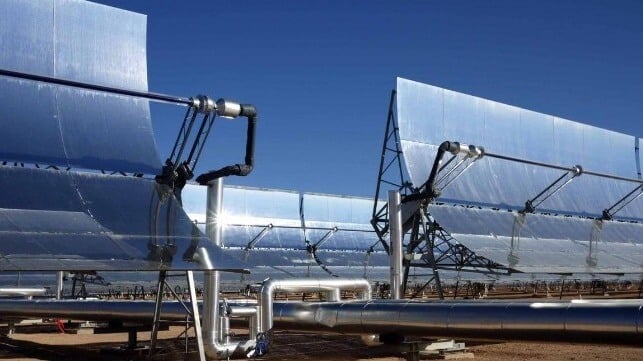European Investment Bank Sees Massive Green H2 Potential in Africa

The European Investment Bank (EIB) has called on Africa to harness its massive solar energy resource to produce cheap and abundant green hydrogen. Clean H2 is a $1 trillion untapped market that could help the continent become a global energy player, drastically cut emissions and decarbonize heavy industries and transport (including shipping).
Though Africa is last on the list by volume of CO2 emissions, the continent bears the brunt of climate change. This could be alleviated by utilizing vast solar energy resources to produce 50 million tonnes of green hydrogen a year by 2035, according to EIB. The green hydrogen could help secure global energy supply, create jobs, and help slow global climate change.
The EIB, which partnered with the International Solar Alliance and the African Union to undertake a study on "Africa’s Extraordinary Green Hydrogen Potential," believes that green hydrogen investments could reduce carbon emissions in Africa by 40 percent, replacing 500 million tonnes of CO2 annually.
Apart from securing access to clean and sustainable energy, Africa has the ability to become a global green hydrogen powerhouse by supplying 25 million tonnes of the clean energy to global energy markets, equivalent to 15 percent of current gas used in the European Union.
Large scale green hydrogen investments would help tackle the worsening impacts of climate change by transforming the supply of clean water in areas regularly impacted by drought, thus helping communities.
The study looked at four potential African energy hubs - Mauritania, Morocco, southern Africa and Egypt. The researchers found that green hydrogen is economically viable and can be produced at less than $2 per kilogram by 2030, which is much lower than the current mass assumption of $5 per kilogram.
“Africa’s has the best solar energy in the world and transforming solar power into green hydrogen can strengthen energy security, cut emissions and pollution and decarbonize industry and transport,” said Abdessalam Ould Mohamed Salah, Mauritania’s Minister of Energy.
Mauritania, Egypt and South Africa have made significant inroads in the green hydrogen market with numerous projects in the pipeline. Egypt, which is aiming to produce 42 percent of its energy from renewable sources by 2035, believes that green hydrogen can contribute $10 to $18 billion to its gross domestic product by 2025. Other countries like Kenya, Morocco and Nigeria are at various stages of developing plans to integrate green hydrogen into their energy mixes.
The EIB study shows that governments on the continent will have to put in place plans, regulations and incentives to mobilize private sector investments. They must also invest in pilot projects to show successful green hydrogen generation, storage, distribution and use.
